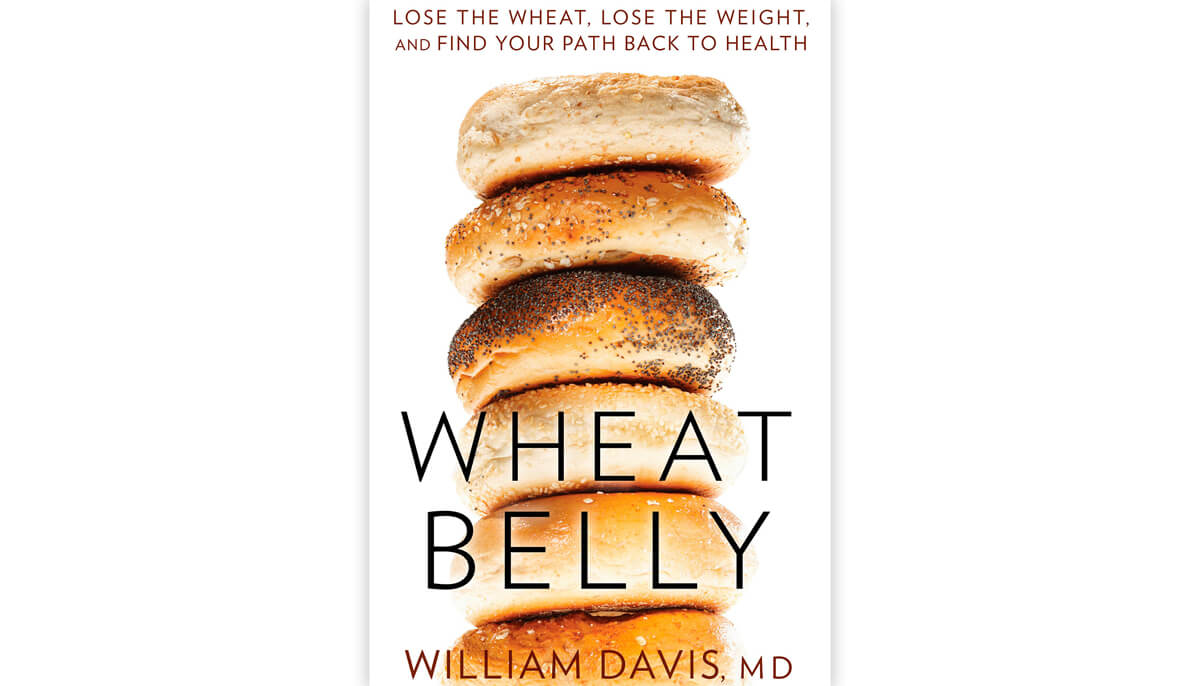Does eliminating carbs really promote weight loss and better health?

By: Megan Holdaway, RDN
The Silicon Valley Registered Dietitian Nutritionist’s Book Club met to discuss the best-selling book Wheat Belly, by cardiologist William Davis. The premise of the book is that eliminating wheat products will lead to weight loss and improved health. The author claims that grains are a problematic calorie source and that modern wheat has been genetically altered to generate a high-yield plant that triggers autoimmune diseases such as type 1 diabetes, rheumatoid arthritis and multiple sclerosis.
As a group, we agree that many people could benefit from cutting back on refined, processed carbohydrates that have had the fibrous and nutritious parts removed. In some cases, that would likely mean eating less wheat. We also agree that there is sometimes a need for eliminating certain foods, as with individuals who have celiac disease or a proven gluten intolerance—which is less than 6% of the population. It is important to note that if individuals think they might have celiac disease or gluten intolerance, they need to get tested by their health care provider before going on a self-imposed elimination diet. Eliminating an entire food group that has proven health benefits can be detrimental to long-term health.
Book club members thought the author overstated the scientific research against wheat. This passage from the preface is an example: “a wide range of diseases result from the consumption of wheat, celiac disease … to an assortment of neurological disorders, diabetes, heart disease, arthritis, rashes, paralyzing delusions of schizophrenia.” Scientific evidence does not support a simple cause and effect from wheat consumption and these illnesses.
While none of the book club members felt qualified to agree or disagree with the author’s assertion that genetic modifications to wheat have made it more harmful to health, the U.S. Department of Agriculture’s Economic Research Service reports that there is no genetically modified wheat commercially produced in the United States. This is due to wheat’s complex genetics and growers’ and processors’ wariness of consumer reaction to genetically modified wheat.
Wheat has been selectively bred over the years, and these changes may have resulted in more intolerance in people with a genetic predisposition, yet it is too simplistic to assume that changes in wheat production cause celiac disease and gluten intolerance. There are many other possible explanations, including the increased use of antacids or the changes in the gut microbiome of infants delivered by Cesarean section—one-third of all births in the United States. The reason(s) behind the increased incidence of celiac disease is not known.
Many of the claims in this book are unsupported by current scientific research. Eating a diet rich in whole grains is well-documented to enhance health. Though some people may feel less bloated if they remove wheat from the diet, a healthy gut requires fiber to produce gas and lower the pH of the colon. Complex carbohydrates are an important source of fuel for the body, supplying fiber that plays a role in digestive health and may improve blood sugar control and contribute to weight management.
The dietitians in our club said they often see clients apply the recommendations in the book very simplistically. For instance, clients eliminate bread and then chow down on highly processed gluten-free foods or candy. If the goal is weight control, at the end of the day, calories do matter. Reducing caloric intake typically leads to weight loss, regardless of what is omitted from the diet. The best approach to long-term health is one that includes a variety of foods from all of the food groups, including dairy, fruits, vegetables, grains and protein.
To learn more from registered dietitian nutritionists on timely nutrition topics, subscribe to the Let's Eat Healthy Ask a Nutritionist video series.

Megan Holdaway, RDN
Megan Holdaway, RDN
Megan Holdaway is a registered dietitian nutritionist and the Nutrition Science Program Manager at Dairy Council of California.
For the first time in over 50 years, The White House convened a Conference on Hunger, Nutrition and Health (WHC) along with a National Strategy (NS).

In this episode of Ask a Nutritionist, Maria Frye, RDN, answers the question, "How does a healthy gut support overall health?”

Subscribe to our blog to stay up to date on the latest news, products, and more.